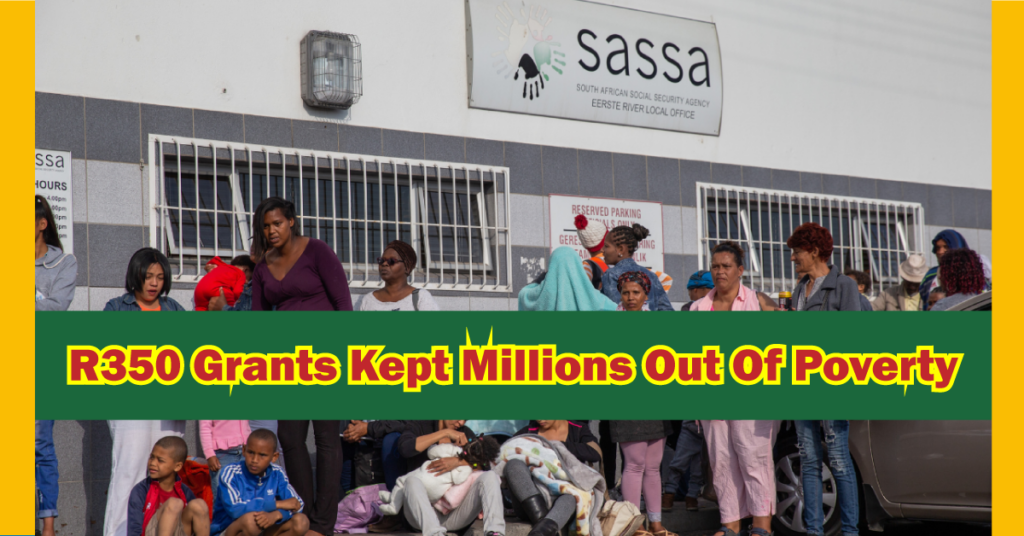The Positive Economic Impact of SASSA Grants on Local Sectors
The South African Social Security Agency (SASSA) is a national agency of the South African Government that distributes various grants to eligible citizens. These grants provide a safety net for millions of South Africans, minimize poverty, and ensure basic necessities are met. However, the economic impact of SASSA social relief grants extends beyond individual households.
They also have a significant influence on the economic health of local communities. Understanding this economic impact is essential to ensure these SASSA grants are used effectively and contribute to a more sustainable future.

Understanding SASSA Grants
SASSA social grants are financial aids provided to eligible citizens in need. The main types of grants include:
- Old Age Pension: For elderly individuals who are 60 years and older.
- Child Support Grant: For caregivers of children under the age of 18.
- Disability Grant: For individuals with disabilities that prevent them from working.
Each grant has specific eligibility criteria and an application process to ensure that aid reaches those who need it most. These grants are essential in a country where poverty and unemployment rates are high, providing a safety net for the economically affected individuals.
Positive Economic Impact of SASSA Grants
SASSA SRD grants have an obvious positive impact on local economies. By giving recipients money directly, these grants create increased demand for essential things. Recipients use their grants to purchase food, clothing, transportation, and other necessities, leading to a rise in overall economic activity within the community.
This increased demand also directly benefits local businesses. Spaza shops and stores experience a boost in sales as residents use their grants for everyday purchases. This not only secures existing jobs but also creates opportunities for new businesses to emerge and cater to the growing demand.
Beyond immediate needs, SASSA grants contribute to household stability. The financial security provided by these grants allows families to focus on essentials like food and shelter, reducing the risk of falling into debt. This stability fosters an environment where families can invest in their children’s education or healthcare, potentially leading to a more skilled workforce in the long run.
Challenges and Considerations
While SASSA 370 grants offer undeniable benefits, some challenges for a truly sustainable and impactful system should be considered.
Leakage
One concern is the concept of “leakage.” This refers to situations where grant money is spent outside the local community. This might happen if recipients purchase goods from national chain stores or online retailers, with the profits flowing out of the local economy. Minimizing leakage is crucial to maximize the positive impact on local businesses.
Debt
Another concern is that grant recipients can fall into a debt cycle. Sometimes, financial difficulties could lead recipients to take on loans. Then, they struggle to repay. This can stuck them in debt, negating the positive impact of the grant.
Sustainability
The long-term sustainability of SASSA grants is a valid concern. With a continuously rising number of beneficiaries, the strain on government finances is significant. This raises questions about the future of these grants and the potential need for alternative solutions.

Enhancing the Positive Impact
These challenges can be addressed and further enhance the positive economic impact of SASSA R370 grants in various ways. These are:
Promoting Local Businesses
Initiatives that encourage recipients to spend their grants at local stores can be highly beneficial. Discount programs offered by local businesses in partnership with SASSA or the organization of community markets can boost local spending.
Financial Literacy Programs
Financial literacy skills are crucial for grant recipients. Educational programs can teach responsible budgeting, saving habits, and debt management, empowering them to use their grants effectively and avoid falling into debt traps.
Supporting Local Entrepreneurship
Encouraging the use of SASSA grants for starting small businesses within the community can create a lasting positive impact. Programs that offer business training and mentorship opportunities can empower grant recipients to become entrepreneurs. This not only encourages self-determination but also creates jobs and stimulates local economic growth.
These are just some considerations of how to enhance the positive impact of SASSA 370 grants. By addressing challenges and promoting responsible financial practices, these grants can continue to be an effective means of addressing poverty and fostering community development.
Conclusion
SASSA grants have a profound economic and social impact on local communities in South Africa. By providing essential financial support, these grants help alleviate poverty, stimulate local economies, and improve millions of South African’s life.
While challenges exist, with effective policy implementation and continuous improvement, SASSA grants can continue to play a vital role in the country’s development, ensuring that vulnerable populations are supported and empowered to contribute to the economy.




![SASSA Grant Workshops and Training: Empowering Applicants [Updated]](http://3.76.98.97/wp-content/uploads/2024/05/SASSA-Empowers-Applicants-768x402.png)

